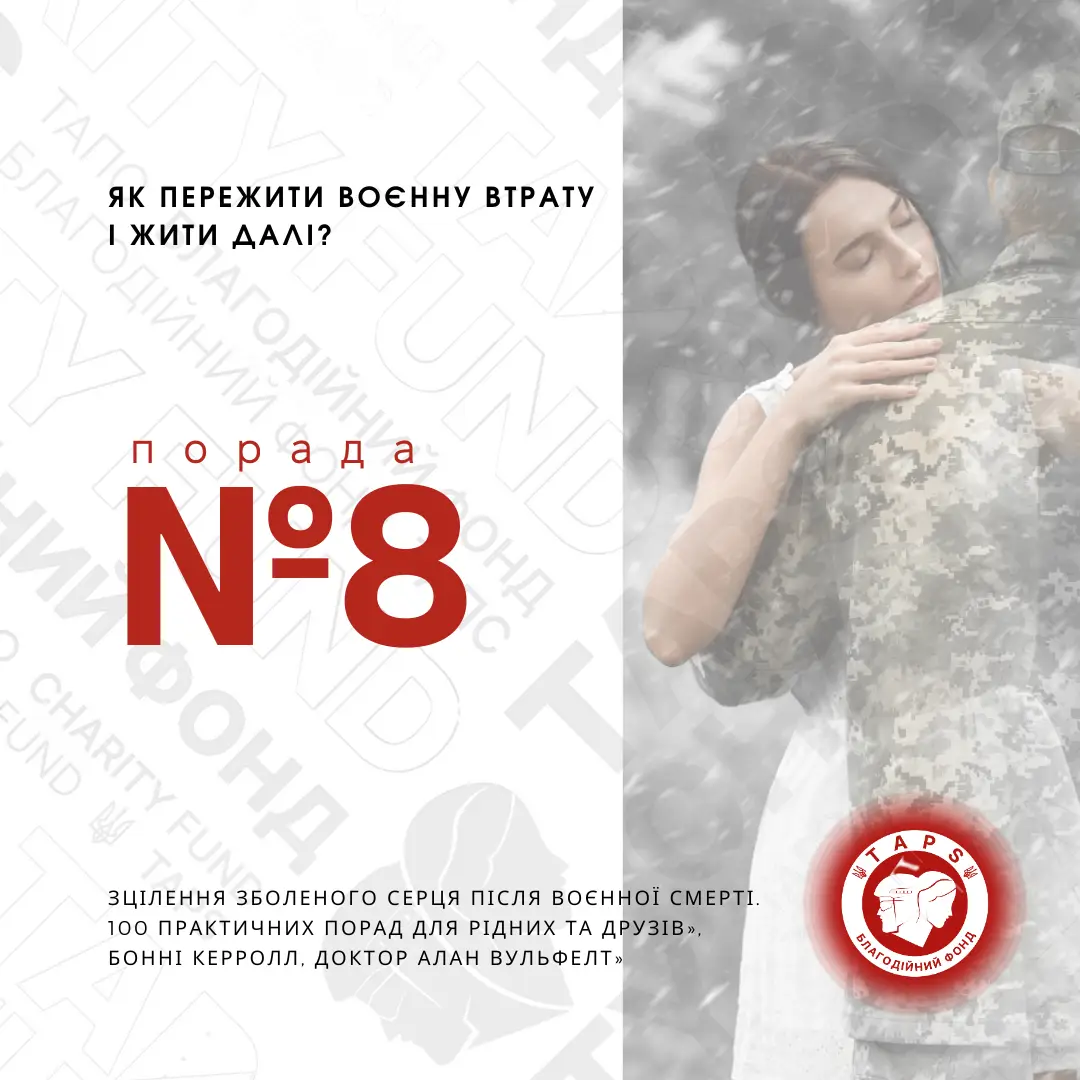"The bad thing is that you will never fully get over the loss of a loved one. But that's good. She will live forever in your broken heart, which cannot be restored. But you move on. It's like breaking a leg that will never grow back the way it was before. However, you will learn to dance with a limp.” (Anne Lamott, from Healing a Broken Heart After a War Death: 100 Practical Tips for Family and Friends by Bonnie Carroll, Dr. Alan Woelfelt)
It seemed to Maria that everyone was running around her and forcing her to either eat more pancakes or drink more tea. Girlfriends call every morning and take them to the park for coffee for lunch. Her mom always put on comedy shows when they had dinner. At some point, Maria understood - it is similar to the fact that her close people treat her as a patient. And indeed, she could not and did not want to do anything, and took a two-month leave from school to complete her scientific work at the pedagogical institute. Two months have passed since she buried the man who died while liberating Kherson. He always laughed, as if he knew that this would be the case: Marus, if I don't happen, you will have much more fun, everyone around you will start entertaining and treating you. She smiled as she remembered those words. If for the first month she was annoyed by such care, as if she were a small child who broke her arm, but now, it became clear to her - her loved ones feel that she is sometimes even afraid to be alone, because her husband was almost the universe in which she felt happiness, care, kindness and did the same for him. "I need time, I will recover, my love, my students are really waiting for me..." she whispered to the trees in the park, where her friends were already running to meet her with her chocolate cappuccino.
- Something catastrophic happened in your life, extremely unpleasant and difficult, painfully painful.
- Your soul is deeply wounded. Just as your body cannot instantly recover from an injury or illness, so does your soul - it needs time to rehabilitate.
- Imagine that you have survived a very serious injury and surgery. You are in intensive care, surrounded by people close to you, friends or other family members nearby. Doctors constantly visit you, and your body rests and recovers.
- This is just the type of care you need right now. The misfortune of losing a loved one in war is no less devastating than a physical injury. Let other people take care of you. Contact them for help.
- Allow yourself as much time to rest your soul as you feel you need. Turn a blind eye to a bunch of tasks or chores if they annoy you. You don't have to climb a mountain just to not think about the pain, because it will catch up with you anyway. Therefore, it is necessary to feel it and live with self-care.
- In the first months and weeks after the death of a loved one, do not expect that you will be able to live as before.
Tip of the day: close your eyes and imagine yourself in "emotional resuscitation." Imagine this place: what is it like? who are you there with What are you being treated for? Who helps you? Consciously organize a week of such rest for yourself. It can be at your home, on a visit, a trip to another country with loved ones. Just walks.
Author: Kateryna Leonova
Source: “Healing a Broken Heart After a War Death. 100 Practical Tips for Family and Friends", Bonnie Carroll, Dr. Alan Wolfelt"

